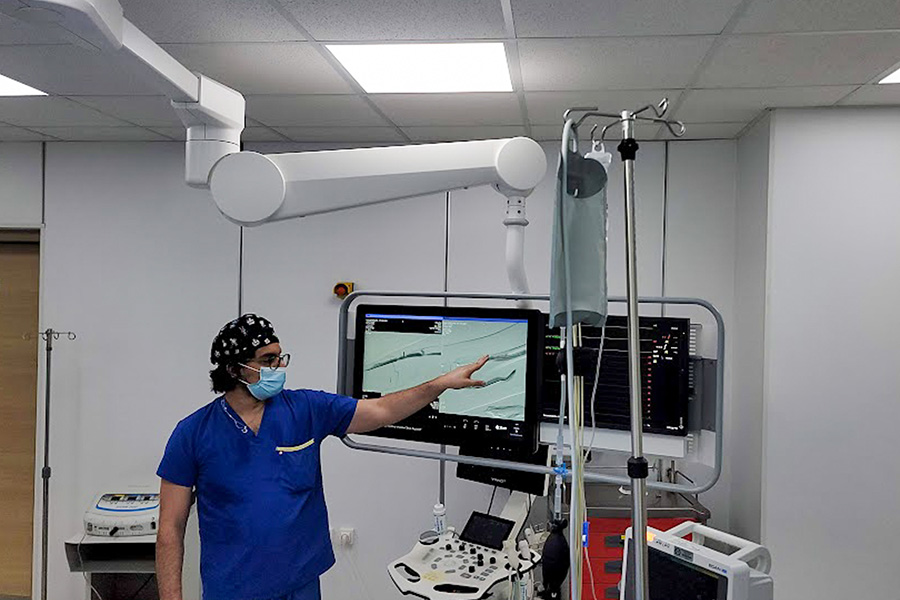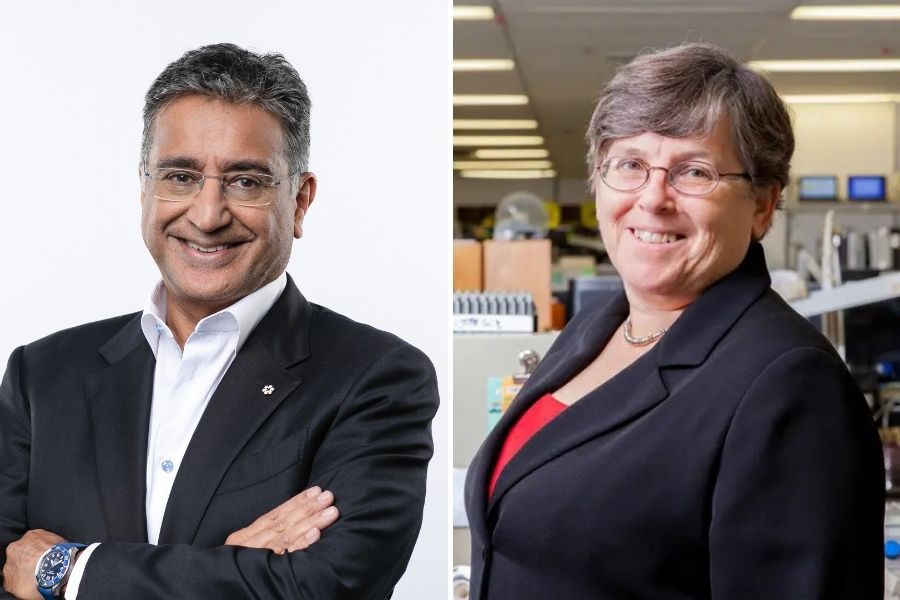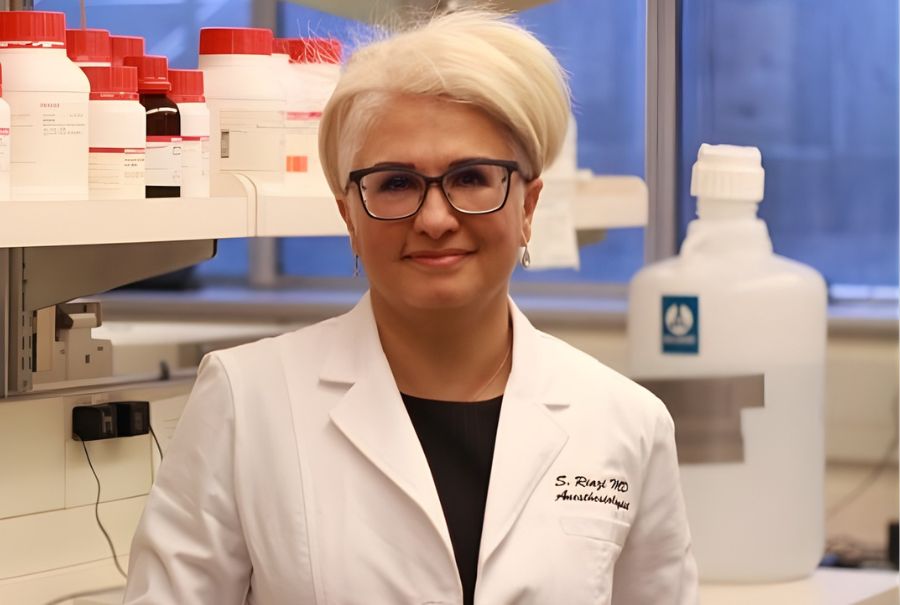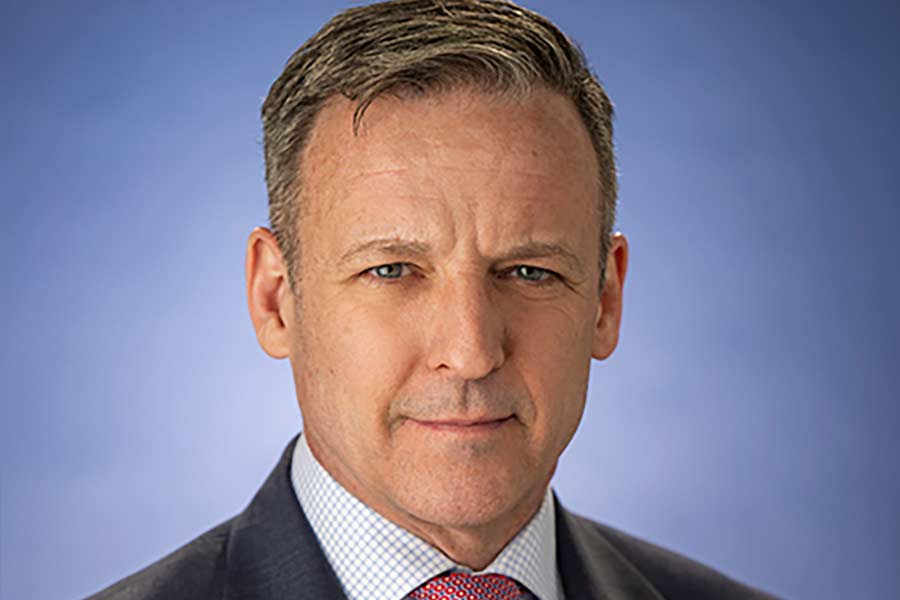(L to R), UHN medical radiation technologist Mark St. Denis, with Gilbert and Isabelle, two members of the interventional radiology team in the Rwanda Military Hospital in Kigali. (Photo: Courtesy Mark St. Denis)
It was a case Mark St. Denis will never forget.
“A 13-year-old boy came in with a pancreatic mass the size of my head,” says Mark, a medical radiation technologist at UHN who travelled to Rwanda last month to provide interventional radiology support.
“It was heart-wrenching to see the severity of the disease.”
Unfortunately, the diseases in Rwanda are often advanced by the time patients reach the interventional radiology (IR) suite. The team confirmed his severe cancer diagnosis with a biopsy and provided support to the oncologist and learnings to the IR team.
Mark gave the young boy maple candies and a Canadian flag pin to help cheer him up. Moments like these have led Mark to two missions abroad supporting IR education and care.
Mark landed in Rwanda on April 16. He was joined by Dr. Aziz Qazi, an interventional radiologist, and registered nurse Amy Callaghan, who are his colleagues on the IR team at Toronto General Hospital. The trio arrived with three suitcases stuffed with medical supplies that were surplus or unused to donate and use during their procedures.
The two-week trip encompassed intensive training sessions and collaborative efforts with local medical professionals at the Rwanda Military Hospital and King Faisal Hospital, both in Kigali, the capital.
Interventional radiology is a specialized branch of medical imaging that aims to diagnose and treat diseases using minimally-invasive procedures guided by imaging techniques. While Rwanda has been developing its IR program, the presence of the UHN team proved invaluable in accelerating progress.
The team from UHN helped train IR nurses, IR technologists and radiology residents contributing to the growth and sustainability of IR services in Rwanda.
“Our local team worked so well with the UHN team,” says Dr. Ivan Rukundo, Rwanda’s only interventional radiologist, who works at both hospitals. “Some of the key areas focused on were in ensuring efficiency in the daily workflow of patients at the IR wing, especially for our nurses.
“Our technologists also learned a lot about the proper use of machines and a better understanding of IR consumables.”
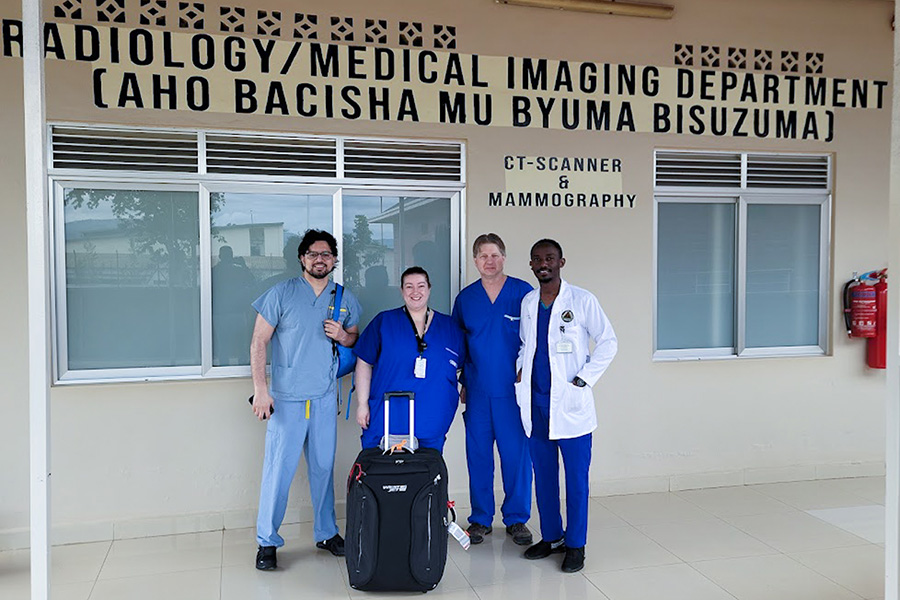
Teaching patient safety was a top priority for Amy.
“It is crucial to involve the patient in the safety checklist process especially because they don’t wear ID wristbands there,” she says.
Being back in Toronto hasn’t stopped Amy from communicating and supporting the IR team in Rwanda. She is working to provide the team with materials that can be used as takeaways for their patients when they leave the hospital.
Education was also central to their mission. Dr. Qazi gave presentations a few times a week to help the teams in IR and other clinical specialities understand the extent of what IR can do, and to enhance collaboration between IR and other clinical services.
For Rwanda, IR services have only been operational since late 2021 and are steadily growing. Procedures offered include biopsies, drainages, dialysis interventions, local regional therapies for hepatocellular carcinoma, hepatobiliary interventions and renal interventions.
The IR team in Rwanda consists of four nurses, one technologist and one doctor. There are no fellows or residents. Dr. Rukundo is actively working on recruiting additional staff to alleviate the burden on the existing team.
The night before the UHN team departed Canada for Rwanda, Amy didn’t sleep.
“I was terrified, and I didn’t know what to expect,” she says.
However, she was met with overwhelming warmth from both staff and patients.
“We met division heads, directors, and everyone was so incredibly welcoming,” Amy says. “They thanked us so much and were eager to learn from us – so that took the stress off.
“And the patients we met were very lovely and appreciative. They expressed sincere gratitude for the care we provided.”
The collaboration between UHN and Rwanda Military Hospital and King Faisal Hospital is a remarkable example of international cooperation in health care. While the trip may be over, the work continues.
Plans are underway to discuss further steps for ongoing support and collaboration, including shipping radiation safety vests that are no longer being used here to replace their single panel vests in Rwanda that do not provide protection to the back of the body.
“Just because we’re back in Canada doesn’t mean the work has stopped,” says Mark. “I will continue to find ways to provide them with more products and advice, and I’m already mapping out my next journey.”
